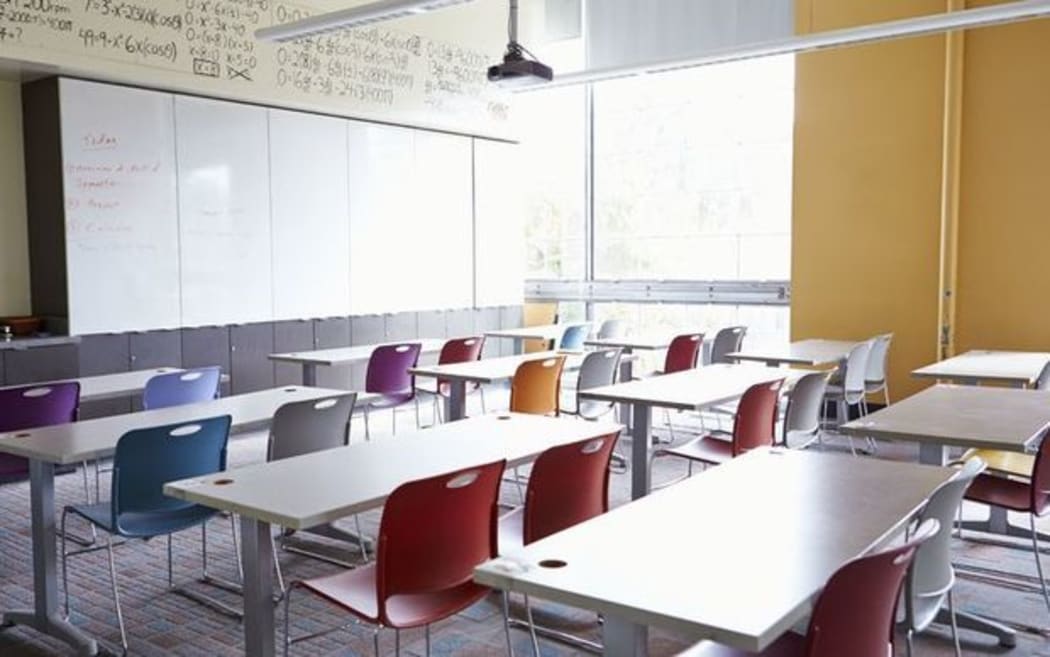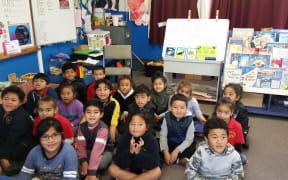Auckland is facing its worst teacher shortage in 20 years and schools are already worried they won't be able to find enough teachers for next year, principals say.

Classroom Photo: 123RF
The Auckland Primary Principals Association and teacher union the Educational Institute said managers were doubling as classroom teachers at some schools and others were using part-timers to fill full-time vacancies.
The union surveyed new teachers and said 260 out of 450 respondents were thinking of leaving Auckland while 57 were actively planning to leave.
One young teacher, Adam Tamariki, told RNZ he started teaching three years ago and loved his job in Manurewa.
But he recently got married and wanted to move somewhere they could buy a house and stop flatting with others.
"We were thinking definitely towards the end of the year if not sooner, just 'cause we really want our own space and want a bit more of a future by ourselves," he said.
Mr Tamariki said experienced teachers were also leaving the city.
"It is pretty sad because they're losing the quality teachers as well - not just new teachers, but teachers who have been in the profession a long time."
NZEI Auckland spokesperson Malcolm Milner said the loss of teachers to other centres was making it harder than ever to find staff.
"I've been a principal for 20 years and I think this is the worst I've ever seen it, this is a real drought," he said.
"For our school, which is a fairly large central Auckland school, it started three years ago, we lost five teachers in one year to Tauranga. We've seen over the course of that three years the number of applicants getting smaller and smaller and smaller."
Mr Milner said schools were doing what they could to put teachers in front of children.
"A job that we advertised last term, we couldn't find a full-time teacher to pick up that so we went for two part-time teachers job-sharing so you're starting to see that happen now," he said.
"We want teachers in front of children and we try and make it work but I think sooner or later it will come to a situation where there is no teacher in front of that class."
Auckland Primary Principals Association president Kevin Bush said principals were already worrying about finding enough teachers to fill vacancies next year.
"There's a lot of anxiety. A lot of schools are struggling," he said.
Mr Bush said some had given up advertising vacancies because of a lack of response.
"I know one school that had three positions and they just gave up advertising in the end and thought, 'right we're going to put our senior leadership team back in the classroom'."
Mr Bush said that was not a good situation, because school leaders had to continue doing their regular jobs on top of classroom teaching.
He said house prices, commuting times and the hard work involved with teaching were contributing to the shortage.
He said the Education Council should make it easier for former teachers to return to the classroom by waiving the requirement that they first do a $4000 course.
"Rather than making them do a teacher refresher course and having to pay for that, let's get them back in the classroom, we can do a mentoring programme around them to bring them up to speed with the change in pedagogy and we can get people in front of children straight away," he said.
"If you've been out of education for say five years you still know how to teach. Yes things have changed a little bit in that five years, but it's a little bit like riding a bike, you still can do it."
The Education Ministry's deputy secretary early learning and student achievement, Ellen MacGregor-Reid, said Auckland was experiencing a "mini baby-boom" and population growth.
She said teacher retention was generally high in Auckland, at over 92 percent, and the city had 1786 more teachers than it did ten years ago.
Ms MacGregor-Reid said the government was spending $9 million to ensure Auckland, along with the rest of New Zealand, had enough teachers.
It was helping schools support 38 provisionally-certified primary teachers work toward full certification, paying recruitment agency costs for schools that recruited beginning teachers, and funding 100 scholarships for science and technology teachers.






